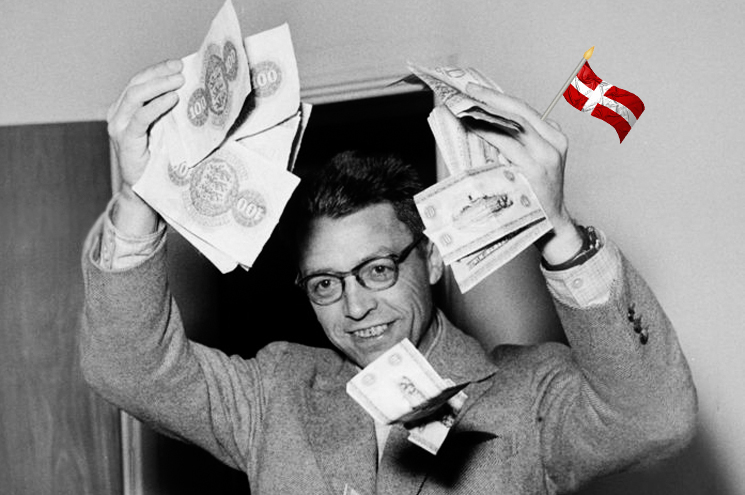When I first moved to Denmark and people asked me how I liked it, I used to say that I liked everything here except for the weather, the food, and the taxes.
Everyone agreed about the weather – particularly if the conversation was taking place during one of Denmark’s sad, rainy summers. And some made a half-hearted attempt to defend Danish cuisine – fashionable Nordic cuisine aside, we are talking about pork, more pork, a little eel, and a bit of reindeer – before mentioning the wide availability of Thai restaurants.
But nearly everyone defended the taxes. “I’m happy to pay,” many people said. Taxes in Denmark are a sacred duty, in a society where very little is sacred. In a recent survey, 90% of Danes said it would be embarrassing to be seen as someone who does not pay their full tax bill.
Fear the taxman
Not that cheating is any simple matter: unlike the rarely-seen and largely passive Danish police force, the Danish tax authorities are ruthless and take no prisoners. They go so far to as use air surveillance to make sure everyone is reporting the right square footage on their real-estate taxes.
The classic tax cheat uses cash to avoid detection, but that’s difficult in Denmark, where nearly all payments – right down even the proverbial pack of gum – are electronic and easily traceable. Many branches of Danish banks no longer accept or dispense cash, and some restaurants will not accept cash either.
In fact, almost the only time cash is used in Denmark is when someone is working off the books. The Danish DK100 note might as well have pictures of cleaning ladies, babysitters and Eastern European roofers, who are pretty much the only people who see it any more.
So most people don’t cheat on their taxes: they pay what they have to, and then focus on getting as much back from the government as they can.
For example, I’m going on maternity leave next month. I’m not pregnant: my only child is 8 years old. She plays the electric bass and has her own desktop computer. But seven years ago, when she was still a toddler, I used up only 9 months of my full 12 months of statutory maternity leave in Denmark. That maternity leave can be used up any time before she turns 9 – which, since I’m between jobs at the moment and she needs extra help with her reading – is now.
Am I taking advantage of the system? Maybe so, but remember, I’ve been paying 60% income tax (the infamous ‘topskat’) and 25% sales tax for nearly 13 years now. I see it as a form of tax refund.
Danes and Taxes
At any rate, while it would be a stretch to say that Danish people love taxes, they certainly don’t seem to mind them.
Unlike in the US or UK, you can generally see what you’re getting for your money: the streets are clean, the buses are on time, and lines of rosy-cheeked of Danish children file through the streets holding hands, supervised by their tax-subsidized daycare providers.
University is free (if you can get a place) and heath care is free (once you make it to the top of the waiting list) and government-run schools are decent, even though private schools are popular among people who can afford them.
Perhaps it’s all a trick of language: the word for “tax” in Danish (skat) is also the word for “darling” or “sweetheart.”On playgrounds, you’ll hear loving parents call out to their toddlers: “Tax! Remember to put on your mittens.”In trains, you’ll catch lovers whispering into their telephones, “I miss you, Tax. I’ll be home soon.”
Yes, in many ways, Danes have a truly affectionate relationship with their taxes.
.





